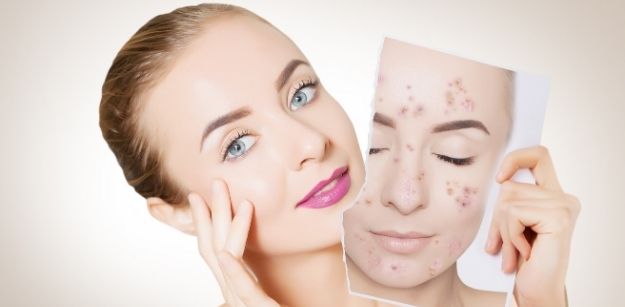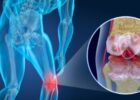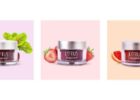Like many others, the cost of specialised treatments and remedies is what’s stopping them from treating their acne breakouts. You have second thoughts when paying a pricey dermatologist for all prescription or over-the-counter drugs. However, you could try various cheap home remedies to remove the inflammation rather than neglect your acne problem. You can also try Witch Hazel for your acne or inflamed skin. You might ask, does witch hazel burn when applied? There are articles about this online that you can read for more information.
In the case that you’re struggling so much with the scars that your previous acne has left, you might want to consider taking an acne scar treatment. Yes, these treatments may cost you a lot, but the result you’ll be getting is worth it. Consult with your dermatologist as they might prescribe you an inexpensive treatment procedure.


With that said, here are some inexpensive ways to treat your acne at home so as to prevent you from overspending on specialised treatments for acne scars.
Honey
Honey actually fights the skin against bacteria when it is moisturising. However, make sure you buy raw honey to help boost acne improvement. Most other forms may be processed too much to achieve lasting results. Clean your face carefully before you do this treatment. Spread the honey for about 15 to 20 minutes all over your face. Make sure to wash off all the honey from your face to avoid any unnecessary substances from sticking to your skin.
Aspirin
Aspirin actually contains an ingredient that helps to clean up and close pores. It often helps cure redness, which also plagues acne patients. To make this mixture, you need one part aspirin tablet and two parts water (1:2 ratio). After making the mixture, you can now apply it on your face or directly on the acne. Even try combining this mixture with a few tablespoons of honey for additional effectiveness.
Baking soda
Almost every household’s handling ingredient is excellent support for treating acne. Create a home remedy paste with a 1:1 ratio of water and baking soda. Put this paste mixture directly on the acne or pimple for about 15 minutes. You should apply a half teaspoon to your usual day-to-day facial cleanser. Be mindful that baking soda extracts oil from the skin, which could cause dryness. After any acne treatment, you can use a moisturiser.
Lemon Juice
Squeeze fresh or bottled citrus juice into a bowl for this home remedy. You should spread the juice across your face with a cotton ball and leave it for 10 minutes or more. The lemon’s cleaning ability is perfect for your acne. Most practitioners will not support the topical use of citrus juice if you have dark skin. The citrus substance can produce dark spots in place of acne because its juice actually affects cells that produce melanin.
How can we prevent acne?
Use OTC acne products to reduce inflammation
The prescription is not mandatory for OTC acne products. Mainly they have ingredients that curb bacteria and dry skin, such as benzoyl peroxide, salicylic acid, glycolic acid, etc. You may have to test the product(s) in small amounts to ensure that the product is safe on your skin. If you have sensitive skin, use these items with caution.
Exercise regularly
Are you wondering what the connection between exercising in preventing acne is? Well, the reason why we should exercise is to keep our blood vessels healthy, and other nutrients in our body will also be productive and keep the skin healthy. Do not wear clothes or fitness devices that can rub your skin and can cause discomfort while exercising. Make sure to take a shower and wash your face after exercising to avoid clogging the pores.
Properly cleanse your face
It’s essential to cleanse your face twice every day to remove impurities, dead cells and extra oil from a skin surface, irrespective of whether or not you have acne. Washing is not always better, more often than twice a day– it may cause more damage than help the skin become healthy. Use a mild facial cleanser with water, not hot. Facial cleansers with aggressive ingredients can damage the skin, especially the ones that are already inflamed and cause further irritation. Do not clean your skin with a washcloth or harsh scrub. Clean it gently with your hands or a very soft cloth. Rinse thoroughly always, then pat dry with a clean towel.
Avoid the sun
Ultraviolet sunlight can increase inflammation and redness and cause hyperpigmentation following the inflammatory cycle. Some acne drugs can make your skin more sensitive to the sun. Limit your sun time, especially between 10 AM to 2 PM. You should wear clothes such as long sleeve shirts, a scarf, a hat to ensure that your skin is protected from the sun. Often apply a sunscreen of 6% or higher zinc oxide and SPF 30 or higher for at least 20 minutes before going outside of your house, be it with or without pimples. Find a sunscreen that is non-comedogenic to lower the risk of an acne breakout.
Moisturise your skin
Many acne products have skin-drying ingredients, so always use a hydrating agent, which reduces dryness and peeling. This hydrating agent is commonly known as moisturisers. Check for the word non-comedogenic, which means it does not cause acne. Hydrating agents for oily, dry or mixed skin are available in grocery stores, pharmacies, and OTC.



